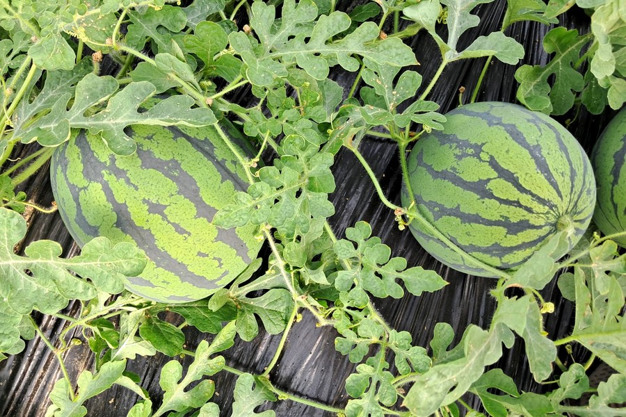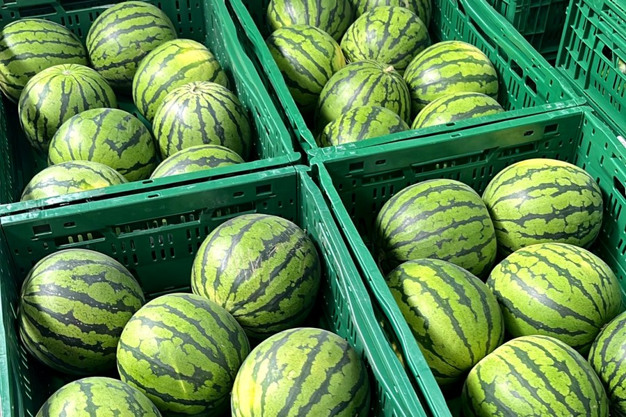The watermelon season kicked off in Almeria in early April, getting off to an early start with very good forecasts. “The sector is generally very optimistic. We at Bio Sol Portocarrero started in the first week of April, around 15 days ahead of schedule, and our supply has arrived in markets in Central Europe during weeks in which countries such as Germany and the Netherlands have recorded temperatures close to 24 degrees, so demand has been very good,” says José Francisco Capel, the company’s president.

“The beginning has been marked by this very early start, but also by the lack of kilos, as the months of February and March have been very cloudy and rainy, and neither pollination nor fruit set have been as effective as they should have been; nevertheless, this week we are already having an acceptable average of kilos, with very sweet fruit and a very good color,” he says.
Bio Sol Portocarrero specializes in the production of mini organic watermelon, “a type of fruit that perfectly caters to the demands of export clients,” says José Francisco. “The optimum weight range is between 1.3 and 3 kilos, and although we work in the organic segment, we are increasingly seeing that watermelons weighing 6 or 7 kilos no longer fit in with the reality of today’s family units, which are smaller and are looking to avoid food waste. We are also embracing this concept of smaller sizes for organic yellow melon, which, with an average weight of 1.1-1.2 kilos, is in great demand in the European market.”

The fact is that the company, based in Nijar, in the province of Almeria, exports almost all of its production, reaching supermarket shelves and clients all over Europe. “Imports from overseas ensure a year-round supply of watermelons in Europe, but you can tell in the flavor when a fruit has been traveling in a container for weeks. This is why Almeria’s fruit is more attractive, and given that watermelon consumption is strongly influenced by temperature, this year has had an optimum start.”
In Spain, Almeria’s watermelon, the first of the season, is also highly appreciated; however, in the case of Bio Sol Portocarrero, only 2% of its watermelon production reaches the domestic market. “Our goal is to reverse this trend and, in fact, every year we are working to increase this share. We could greatly reduce our logistical costs, our product would have a longer shelf life, and Spanish consumers would be able to consume a fruit that is grown sustainably and totally free of residues.”
“Furthermore, the prices of organic products are increasingly in line with those of conventional products, so, while in Spain we are not yet prone to eating 100% organic or consuming these smaller sizes, price is no longer an excuse, and this is why we believe that consumption is bound to increase in the coming years.”
 For more information:
For more information:
Biosol Portocarrero
Bio Sol Portocarrero, SAT
Ctra San José KM 3
04117 Barranquete, Níjar, Almería, Spain
Tel.: +34 950 387016
https://biosolportocarrero.com
Source: The Plantations International Agroforestry Group of Companies
